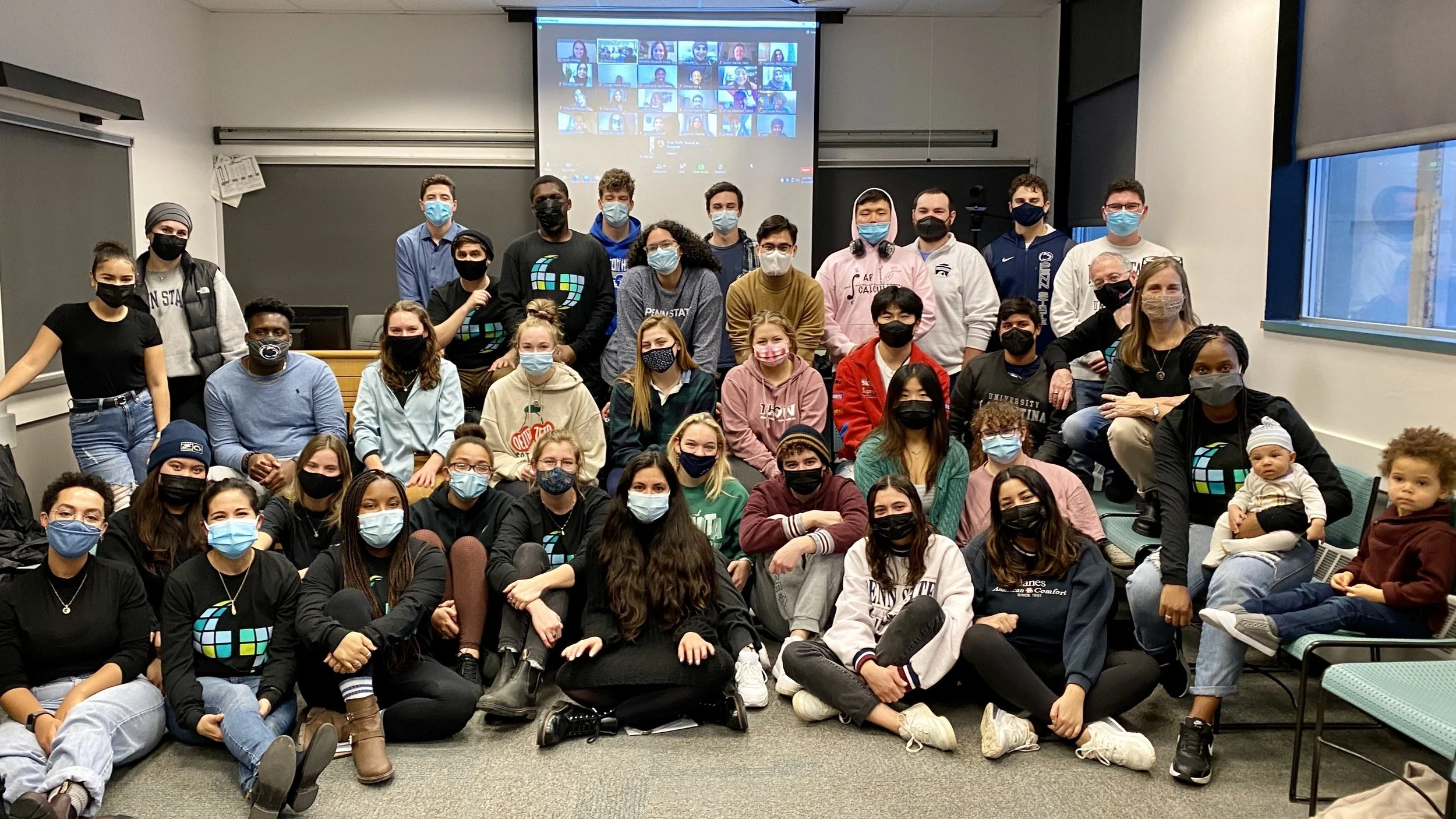We are a unique laboratory for engaged learning.
At World in Conversation, students from every discipline become practiced in real-world program delivery.
A number of years ago we surveyed universities around the country and found that none had dialogue programs and facilitator training classes happening at the scale they were happening at World in Conversation (WinC). Nor did we find a place where students are being entrusted with the high degree of responsibility we give them to both facilitate dialogues and operate the necessary administrative systems to deliver them.
What follows is a brief overview of some of the dimensions of our learning laboratory offered to students.
Every facet of our training is meant to develop the mindset and skills needed to become a dialogue facilitator. This is truly a hybrid learning environment that pairs sociological thinking with communication technologies. Curriculum and practicum must pair together to create engaged learning. Students spend up to 70 hours in a given semester in dialogue facilitation practice.
Though they may be the least visible, they have their hands in everything from hardware to software, audio to video, videoconferencing to webmastering, live streaming to podcasting, social media to recording storage, staff and student training to creating and organizing media assets—as well as the everyday maintenance and troubleshooting of these complicated systems (both at the center and with our global partners).
This team is effectively “running the business”. For each dialogue, they welcome participants, troubleshoot technology, and take attendance, and deliver the post-program evaluation. They develop and maintain our custom registration application, website, center-wide calendars, and custom spreadsheets. They are responsible for the registration and attendance of over 17,000 participants, the scheduling of over 100 facilitators, and the communication with more than 200 stakeholders each year.
Comprised of faculty, staff and students, Task Forces use a Grounded Theory approach to collect data and analyze trends that point to the internal and cultural architecture of dialogue. In this open setting, students voice personal learning challenges, collaboratively refine strategies to address their most difficult dialogue obstacles, and creatively practice communication techniques. At any given point the center’s history, Task Forces study our evolving method as we are applying it in our dialogue initiatives.
Sociology 119 has been live streaming its class for the past four years with the help of students involved in the live streaming, post production, and online video distribution process.
Most of us have never experienced what it is to operate in a “non-homogenous” community or organization that honors and uplifts differences, not because doing so “looks good,” but because it is good. That unusual environment is what we are building here at World in Conversation. And like all things humans create, it is a work always in process.
the faces of world in conversation
Advanced Facilitation Team, Operations Interns, and WinC Staff - Spring 2022
sTAFFING a student-driven center
We are a student-driven Center meaning that one of our ongoing goals is to operate as fully as possible on undergraduate skills, talents and abilities–as well as on their growing potentials. For two decades, students, regardless of their major or background, have described over and over to us that the real-life application of skills that is tapped at the Center is paramount in their educational experience. In addition to working with student facilitators, we create systems to support increasing student involvement in Center operations, including scheduling and registration systems, data collection and archiving, program assessment, as well as research and development. This structure works well to build a collaborative and innovative work environment that is constantly being re-invigorated and reviewed with “fresh eyes.” We will continue to engage undergraduates at this level because we know it prepares them to be top candidates in their fields by offering them a rare and practical experience--to be part of a multicultural workplace that is responsive to both the needs of our stakeholders as well as the needs of the people who work in it.







